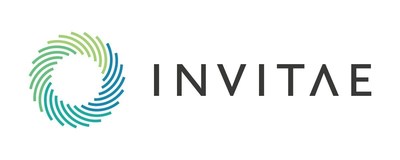Leading Biopharmaceutical Companies Select Invitae to Develop Standardized Panel to Detect Molecular Residual Disease (MRD) in Patients with Acute Myeloid Leukemia (AML)
Invitae Corporation (NYSE: NVTA) announced a collaboration with Bristol Myers Squibb, Janssen, Novartis, and Genentech to develop a standardized panel for detecting Molecular Residual Disease (MRD) in Acute Myeloid Leukemia (AML) patients. The initiative aims to enhance clinical trial testing and establish MRD as a reliable biomarker. The new multi-gene panel will utilize next-generation sequencing technology to detect over 90% of genetic alterations in AML. This partnership is focused on improving treatment outcomes through standardized MRD data collection.
- Collaboration with leading companies to develop standardized MRD detection panel.
- Utilization of next-generation sequencing to enhance detection accuracy.
- Expected use of the panel in global clinical trial sites to reduce turnaround time.
- Standardization efforts may face challenges due to existing technologies and assessment methods.
Insights
Analyzing...
SAN FRANCISCO, Jan. 14, 2021 /PRNewswire/ -- Invitae Corporation (NYSE: NVTA), a leading medical genetics company, today announced the launch of a new project with Bristol Myers Squibb, Janssen Research & Development, LLC (Janssen), Novartis and Genentech, a member of the Roche Group, to develop a standardized panel for MRD detection in patients with AML to support clinical trial testing across multiple drug development programs. The companies are working together to standardize how MRD data is generated and assessed in clinical trials helping to better establish the clinical utility of MRD as a biomarker in AML.
"Given the existing evidence that shows assessing the presence of MRD can provide valuable information on how well a treatment may be working, we hope to further establish MRD detection as an objective tool for clinicians to create the best treatment plan for individual patients," said Jason Myers, Ph.D., president of oncology at Invitae. "Together with leading, global biopharmaceutical companies, Bristol Myers Squibb, Janssen, Novartis and Genentech, we intend to develop a panel that can accurately measure and standardize MRD data collection in clinical trials with the goal of accelerating trial timeframes to bring novel therapies to patients in need sooner."
MRD is the detection of residual disease after treatment based on the presence of molecular biomarkers when the remaining cancer cells are not detectable by conventional methods. The detection of MRD typically relies on highly sensitive and specific technologies such as next-generation sequencing, which has become more commonly used in recent years. Specifically, in AML and other blood cancers, studies have shown the presence of MRD after treatment may predict survival outcomes for patients.
While a growing body of evidence continues to demonstrate a correlation between MRD and the risk of disease relapse or recurrence among other prognostic factors, lack of standardization of MRD technologies and assessment methods have slowed the acceptance of MRD as a clinical trial endpoint in AML. Another goal of the project is to further evaluate MRD as a predictive biomarker and clinical trial endpoint to assess the effectiveness of novel therapies.
"We're proud to be working with these leading companies to further refine the standards for MRD detection and help establish its utility as an accurate and rapid indicator of treatment effect," said Sean George, Ph.D., co-founder and chief executive officer of Invitae. "Standardized MRD results can help give providers confidence they are creating a personalized plan for their patients with the goal of improving quality of life and overall survival."
The multi-gene, next-generation sequencing panel is expected to be used in AML clinical trials to measure baseline molecular status as well as track MRD status. The panel will be built on Invitae's Anchored Multiplex PCR (AMP™) chemistry, allowing the tests to be completed in laboratories at local clinical trial testing sites across the globe, reducing turnaround time for results.
Approximately
About Invitae
Invitae Corporation (NYSE: NVTA) is a leading medical genetics company, whose mission is to bring comprehensive genetic information into mainstream medicine to improve healthcare for billions of people. Invitae's goal is to aggregate the world's genetic tests into a single service with higher quality, faster turnaround time, and lower prices. For more information, visit the company's website at invitae.com.
Safe Harbor Statement
This press release contains forward-looking statements within the meaning of the Private Securities Litigation Reform Act of 1995, including statements relating to the ability of the company to develop a standardized panel for MRD detection; the expected benefits to the parties, and to patients and clinicians, of any MRD panel developed by the company; the attributes of any MRD panel developed by the company; and the expected uses of any MRD panel developed by the company. Forward-looking statements are subject to risks and uncertainties that could cause actual results to differ materially, and reported results should not be considered as an indication of future performance. These risks and uncertainties include, but are not limited to: the ability of the company to successfully develop the panel; the applicability of clinical trials to actual outcomes; the company's history of losses; the company's ability to compete; the company's failure to manage growth effectively; the company's need to scale its infrastructure in advance of demand for its tests and to increase demand for its tests; the company's ability to use rapidly changing genetic data to interpret test results accurately and consistently; the impact of litigation on the company's business; laws and regulations applicable to the company's business; and the other risks set forth in the company's filings with the Securities and Exchange Commission, including the risks set forth in the company's Quarterly Report on Form 10-Q for the quarter ended September 30, 2020. These forward-looking statements speak only as of the date hereof, and Invitae Corporation disclaims any obligation to update these forward-looking statements.
Contact:
Laura D'Angelo
pr@invitae.com
(628) 213-3283
![]() View original content to download multimedia:http://www.prnewswire.com/news-releases/leading-biopharmaceutical-companies-select-invitae-to-develop-standardized-panel-to-detect-molecular-residual-disease-mrd-in-patients-with-acute-myeloid-leukemia-aml-301208113.html
View original content to download multimedia:http://www.prnewswire.com/news-releases/leading-biopharmaceutical-companies-select-invitae-to-develop-standardized-panel-to-detect-molecular-residual-disease-mrd-in-patients-with-acute-myeloid-leukemia-aml-301208113.html
SOURCE Invitae Corporation








